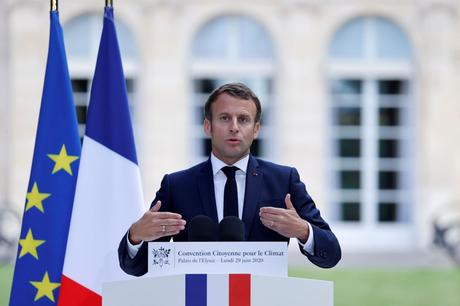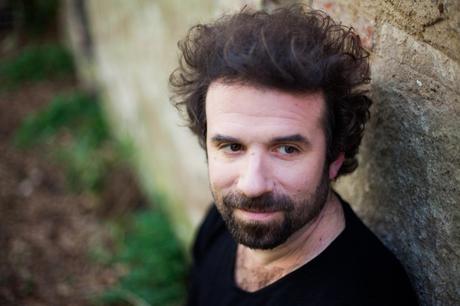
Bordeaux, Marseille, Lyon, Grenoble, etc. Four of the largest cities in France elected an environmental mayor in the last municipal elections. Does this mean a “green wave”? Cyril Dion prefers to put things in perspective. For the co-author of the successful documentary Tomorrow , released in 2016, France is far from having changed software. He goes even further: the battle has only just begun. La Presse spoke with this environmental star, director, writer, activist, French equivalent of our Dominic Champagne.
Published on 12 July 2020 at 6 a.m. 00

La Presse
Results to qualify
The 28 Last June, seven cities in France over 100 00 0 inhabitants were conquered by the EELV party (Europe Écologie Les Verts) in the municipal elections. Among these, very large catches like Marseille, Lyon and Bordeaux … It was enough for the media to speak of a “green wave” in France. Cyril Dion prefers to put things in perspective. A breakthrough, perhaps, but for the tsunami, we will come back.

PHOTO FANNY DION
Cyril Dion, environmental activist
“What we see first is the record abstention rate (60%). Then, among the people who went to vote, there was a green wave in urban areas. We see that a fracture has occurred. The big cities have green mayors because it is in the big cities that people suffer the most from air pollution, the number of cars, noise, lack of trees … On the other hand, in areas more rural, where people suffer less from this, where there is less acculturation on all these subjects, we have mainly voted on the right. This is a more nuanced statement than saying: all French people have become green. “
Citizen proposals
At the request of Emmanuel Macron, a group of 150 citizens drawn was created last year to formulate solutions to combat global warming.
The conclusions of this “citizen climate convention” were unveiled last week by the president. On the 149 suggestions submitted, 146 have been retained by the Head of State and could turn into a project of “multi-measure” laws from here 2021. Among these: a ban on SUV ads, genetically modified seeds, indoor air travel (when taking the train is possible), moratorium on new commercial areas on the outskirts of cities, end of the artificialisation of soils, etc. .
Macron has also promised to hold two referendums on these local proposals 2021 .
One would cover all 130 measures selected. The other will ask the French if they agree to include the concepts of biodiversity, environmental protection and the fight against climate change in Article 1 of the Constitution.
“For the moment, the ecological dimension is completely absent from this first article,” recalls Cyril Dion, who played a crucial role in the establishment of this “citizens' convention”. “This is a real step forward. Legally, it has a lot of impact. There are countries like Bolivia and Ecuador that have already included the concept of environment in their constitutions. It’s kind of the horizon for the next few years, I think. Giving rights to nature is inevitable if we really want to have a legal structure that can protect ecosystems. “
Rejected ideas
Three of the 149 proposals did not been retained by President the Republic: the lowering of the speed limit of 130 at 110 Km / h on highways, the imposition of a 4% tax on corporate dividends greater than 10 million euros and the inclusion of the concept of ecology in the preamble to the Constitution (which precedes the article 1). Reason invoked for this last refusal: this proposal “would threaten to place the protection of the environment above public freedoms”. “It is questionable,” retorts the activist. They still haven't understood that human rights over a completely degraded planet don't exist … “
Macron “does not go very far”
It accepted 146 proposals on 149. Still not bad. Should we speak of a “green conversion” for Macron? Not so fast, replies Cyril Dion. Even if Macron tries to engage on the ecological question more strongly, his actions are probably more a matter of political calculation than deep conviction. “We are the same age, but we do not have the same concerns at all,” says the activist, who has met the president a few times. Ecology is absolutely not in its software. He says it himself. It has software that is more like XX e century. He is someone who is fairly modern in terms of manners. On the ecological dimension, however, it does not go very far. “

PHOTO OLIVIER CHASSIGNOLE, AGENCE FRANCE-PRESSE
The City of Lyon distributed free green beans to its residents last Friday to mark the victory of the EELV party in the municipal elections.
Progress and resistance
Cyril Dion admits that mentalities are starting to change in France. But the environmental movement still encounters a lot of resistance.
“The industry and lobbies, of course, but also opinion,” he said. Despite the consensus on environmental issues, we have seen editorials who have gone completely mad, who have started talking about an ecological dictatorship and even comparing certain ecological candidates to Hitler. In the municipal elections, we had several cities where certain candidates, where certain business leaders called to “block” the environmentalists. These are the words we usually use for the National Front! What does barring environmentalists mean? Do we want to block the idea of protecting nature, fighting global warming? It’s normal, when new ideas emerge, that they are seen as a threat. But I think that’s a sign that these ideas are happening. “
The impacts of COVID – 19
The COVID crisis – 19 has it accelerated our awareness? The activist is convinced of this. “The pandemic has given birth to this idea of the fragility of our societies, of the absurdity of the growth system. For two months, we stop. Factories, stores stop, and suddenly everything else has to collapse. We discover that we have to run the machine all the time, otherwise everything breaks up. Except that constantly running the machine at full speed is what is destroying ecosystems. I think there are a lot of people who said to themselves, “There may be a problem …” “
“We can do something”
When his documentary, Tomorrow , was released in theaters in 2016, we presented Cyril Dion as the positive and hopeful ecologist. Four years later, when he finishes his second documentary for the cinema ( Animal ), is he still as optimistic? “I don't think I've ever been optimistic,” he concludes. Tomorrow was inspired by a study by 2012 which was still quite apocalyptic. What I was, and still am, is constructive. I say: the problem is very serious, but there is something we can do. There is no point in depressing people… ”

